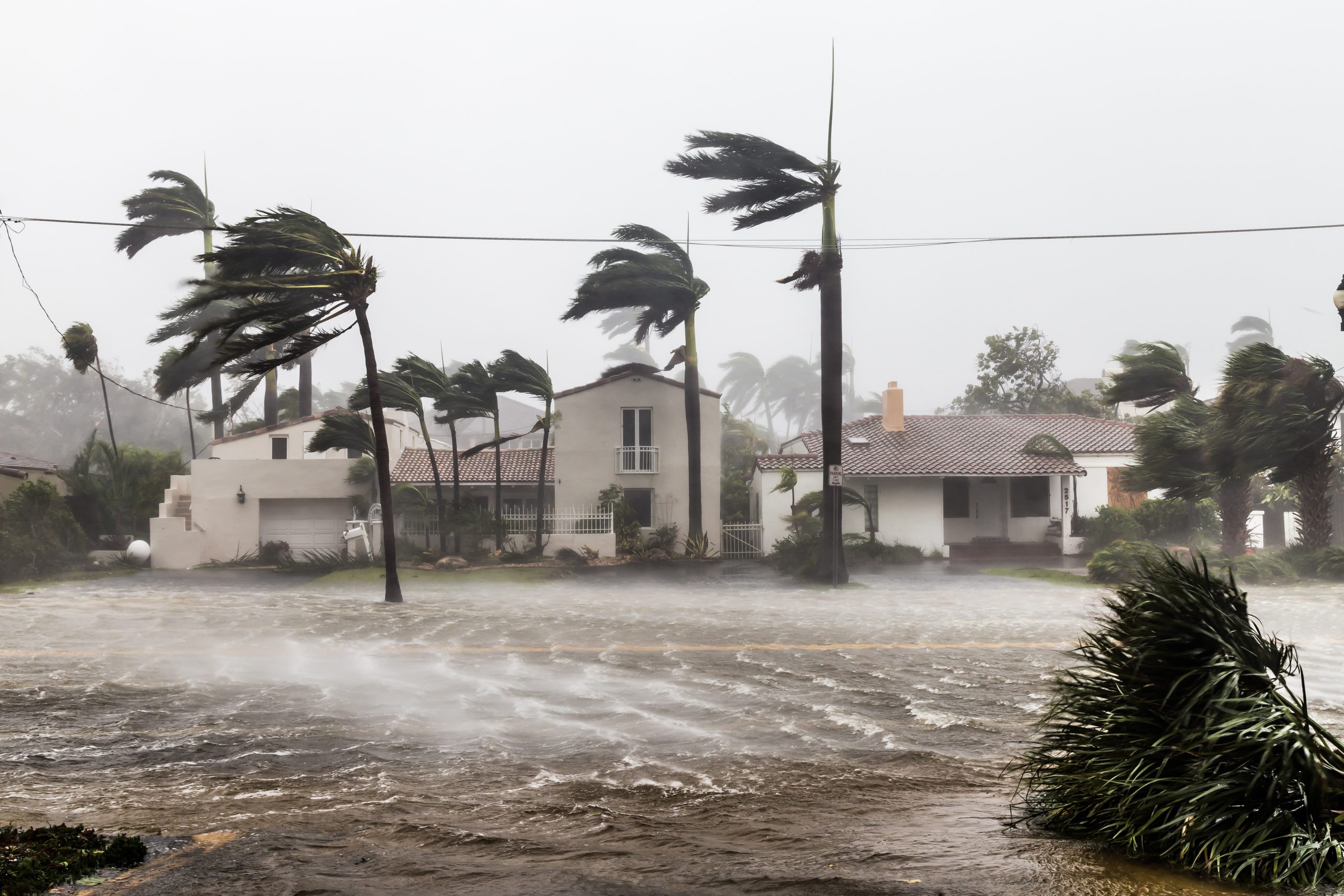Preparing Your Home For Hurricane Season: Take These 8 Precautions Today

National Hurricane Preparedness Week is May 9 to 15, which is the ideal time to review your emergency plan and make sure you and your family are ready before disaster strikes. While you might assume you’ll have ample warning, a hurricane can arrive more swiftly and with more force than predicted, and you never want to be the person who says, “It couldn’t happen to me.”
As a bonus, preparing for hurricane season means you’ll also have the peace of mind that you’re prepared for any other potential emergency that arises. Here are eight steps to get you started.
1. Sign up for weather alerts.
The National Weather Service is equipped to send Wireless Emergency Alerts (WEA) to your mobile phone automatically, but you might need to enable the settings. (Find out how here.) You also may want to sign up for the NWS Twitter account for updates, as well as accounts handled by news agencies that service your specific area so you’re always getting the most updated information. You also can download apps from the American Red Cross and FEMA, among others.
2. Chart your path.
Identify a safe place in your home where you can take refuge from high winds, but also be aware of what evacuation zone you are in so you can leave when directed. Take advantage of calm weather to practice multiple evacuation routes and figure out where the nearest designated shelter is so it will be second nature if it’s time to go.
3. Rehearse your emergency plan with your family.
Share the physical route with your family, but also create a communication plan. Often entire areas lose cell phone service or local phone lines may be jammed, making it more likely a long-distance call will go through. Designate a contact outside of town, whom each family member is instructed to check in with to let them know they are safe and share their whereabouts.
4. Update your emergency kit.
If you don’t have one, now is the time to assemble one, and if you do, take a moment to replenish items that have been used, rotate food or water that is close to its expiration date, and add what’s needed, such as new prescriptions and masks for family members.
Not sure what to include in your emergency kit? Ready.gov has a handy checklist that will ensure you’ve covered all your bases. And it’s wise to put a mini version in your car as well, in case you’re out and about or the roads are impassable to your home.
5. Remember there may be additional guidelines because of COVID-19 protocols.
The Centers for Disease Control and Prevention (CDC) offers tips for special considerations to prepare yourself during the pandemic. Make sure to wear a mask and social distance as you check on friends and neighbors.
6. Prepare your home.
While you might need to handle some of these activities when a hurricane is imminent, there are steps you can take now to safeguard your home.
- Outside: Prune trees and shrubs to lessen damage from high winds. Install storm shutters on external windows. Take a walk around your yard to identify items that should be secured, such as water features and outdoor furniture that can’t be easily stowed.
- Inside: Take an inventory of all your belongings to help with the claims process, if needed. Verify that furniture, art, and mirrors are anchored to the walls. Make copies of important papers and store them in a fireproof safe or safety deposit box.
7. Create a checklist of what to do if a hurricane nears.
While you can only do so much in advance, stress can get the better of you as a hurricane bears down. Now’s the time to make a checklist of last-minute duties you don’t want to forget, such as:
- Rounding up your pets.
- Securing items indoor and outdoor that are too big to move but could fly around.
- Parking your cars on higher ground or somewhere where they will be safe, such as inside the garage or away from trees and power lines.
- Moving irreplaceable items to a higher level in case of flooding.
- Turning off the main circuit breaker to avoid short circuiting.
- Gathering the items you intend to take with you.
- Checking on family members, friends, and neighbors.
8. Double-check your home insurance policy.
While most home insurance policies cover hurricane damage, it’s always wise to make sure you understand your policy to avoid an unwelcome surprise. For example, in some states there may be special deductibles for damage caused by hurricanes, and they could vary depending on what factor triggered the hurricane, says the Insurance Information Institute.
You also should see if your insurance covers “replacement costs,” which is different from market value and takes into account how much it costs to replace your home and its contents in today’s dollars.
Do you need a home insurance checkup? Visit Matic today to compare policies and ensure you have adequate coverage. We’ll make it easy to get the insurance policy that’s right for you.



